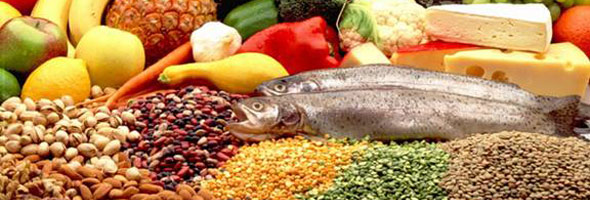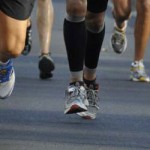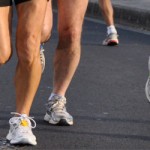Whereas sportspersons continually look to improve performance through consistent training, one of the most important aspects of training should be recovery. The idea behind recovery is to allow your body to absorb the workload from the various training sessions. This is where the correct eating habits can assist you in speeding up your recovery. Just as we have optimal training, you should have optimal recovery through nutrition.
Optimal recovery through nutrition relies on the following :
- Fluid and Electrolyte balance restoration. In hot climates, where sweat loss exceeds the usual intake of fluid, it is often likely that you will finish a training session with a degree of dehydration, no matter your planning for fluid intake. It is vital that fluid levels are restored especially if planning exercise later that day or the following day.
- Never attempt to assess your state of hydration by the level of your thirst. Once thirsty it is often too late. Always plan your fluid intake beforehand. The amount of fluid needed to restore your fluid levels could vary from 500ml to 3l, depending on the amount of sweat lost during a session, and whether you replaced fluid during the exercise itself. It is often necessary to need between 4-24 hours to replace and rebalance your body fluid losses effectively.
- Replacement of your fluid balance as soon as possible is wise, so try to drink often and as much as one comfortably can take directly after an exercise session. The plus side of sports drinks is ‘taste’ and this often leads to a higher intake, as well as containing soduim, an electrolyte which needs to be replaced after sweat loss. Avoid alcohol and caffeine during this rehydrating period, as they can stimulate urine production and therefore have a marked water loss (diuretic) effect on the body.
- The replenishment of glycogen – the muscle fuel stores. Optimal glycogen storage is an important daily challenge for sportspersons. Depending on the intensity and duration of your exercise, will determine the extent to what you will need to ‘refuel’ your glycogen stores before each session. Research has underlined the importance of following a special dietary programme for those who are committed to daily training sessions. Failure to do so will hinder your rate of recovery and impair performance.
It has been found that to assist in the quick restoration of muscle fuel stores, after intense and continuous exercise, one should consume a snack made up of between 50 – 100g of carbohydrate within 15-20 minutes after the exercise session. This is not as difficult as some may think due to the varying forms of snacks available that easily fulfill the requirements needed. Below is an example of such sources :
800 – 1000ml of a sports drink e.g. Gatorade
500ml of fruit juice / a sweetened soft drink
50g packet of jelly sweets or 10 marshmellows
A large muffin with a small bunch of grapes
1 ½ hot cross buns with a banana
3 granola bars or a granola bar with a fruit yoghurt
3 rice cakes with a large apple
If not returning to your normal eating routine, then repeat the snack every two hours. Your muscles should recover as long as you reach your carbohydrate requirements, whether through big or small meals. Below are quick low fat and nutritious mini meals which contain the correct carbo amount which will optimise the recovery of your body’s fuel stores:
A wholewheat salad sandwich or roll with a slice of lean meat or cheese and a fruit
A bowl of thick vegetable soup with a large wholewheat roll
A bowl of fruit salad with a carton of fruit yoghurt
A bowl of your favourite cereal with low fat milk or yoghurt
2 slices of toast with a generous helping of baked beans
2 pieces of pizza
A glass of home made low fat milk shake or a fruit smoothie
Planning is all important when balancing your training and eating schedule. Make the most of the foods available to you and assure that everything is at hand, so that you are able to replenish easily within your daily schedule.
Other articles of interest in the Nutrition section:
- Omega Fatty Acids – a Hype or Help?
- Are carbohydrates of benefit during a race?
- What are carbohydrates?
- The Importance of Nutrition for Recovery Fluid and Electrolytes to support activity
- Food sources high in carbohydrates
- Fluid replacement during exercise in moderate temperatures
- Optimal nutrition for exercise
- Essential minerals – keep your body`s engine in tip top form
- The 10 Worst Foods You Can Eat
- Vitamins Explored
- Vitamin C and its suspected harmfulness explained
- Food sources high in carbohydrates
- How to calculate the Energy available from foods






























